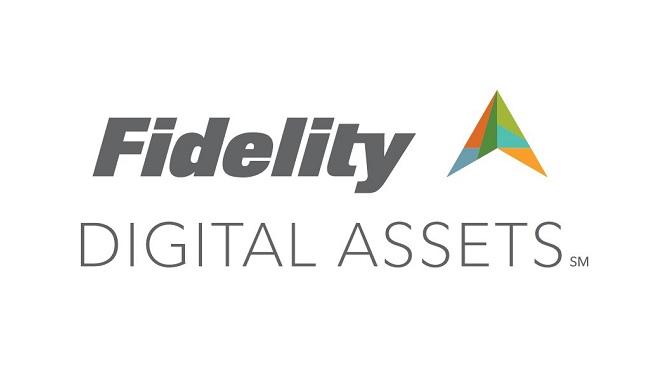
Bitcoin is without a doubt making a big splash in institutional investment circles. Specifically, news stories are pouring out daily about institutional investment firms and regulators enacting new policies and partnerships to assist in the process of blockchain technology integration into their businesses and crypto adoption.
However, this has not always been the case. Rather, institutional investors were initially reluctant to embrace crypto. There have been several large companies such as PayPal, Grayscale, and Visa – just to name a few – that in the past years have publicly stated their disliking, or misunderstanding of Bitcoin, and written it off as a scam. These companies, amongst others, have since been quietly working in the background to invest with hopes to regain first-mover advantages, before publicly stating they are now investing or partnering with cryptocurrency projects.
Blockchain in enterprise and growing institutional adoption of Bitcoin is a significant step toward greater adoption and use of cryptocurrency. In this article, we will cover why this is the case, the challenges of doing so, and list some large institutions already investing in Bitcoin.
Seeing as both institutional investments in Bitcoin and blockchain adoption among enterprises are surging, now is the time to kickstart your blockchain education. The best alternative for doing so is naturally Ivan on Tech Academy, which already has over 20,000 enrolled students.
Why Bitcoin Is Valuable
Bitcoin was created following the 2008 financial crash as an alternative, or solution, to regular, government-dispensed fiat money, that has historically been manipulated and devalued to eventually be worth zero, before resetting the currency and starting all over again.

Bitcoin was ‘given‘ to the world through an anonymous individual or group of developers known as Satoshi Nakomoto. Some people in the cryptosphere have even speculated that Bitcoin could have been a gift from aliens, however, there is little data to support this. Satoshi Nakomoto created and published the Bitcoin whitepaper in 2008, and the Bitcoin network went live from January 2009. Nakomoto holds just shy of 1 million Bitcoin, and his or her identity remains unknown to this day.
To quote Robert Kiyosaki “if gold is God’s money, Bitcoin is the people’s money“. Bitcoin is not owned by anyone or controlled by a central or governing party.
Bitcoin is borderless, censorship-resistant, and is powered by a network of thousands and thousands of computers across the globe, each one achieving consensus on the validity of a transaction by verification through maths and science. This process makes up what is known as blockchain technology.
Bitcoin is valuable not only for just the technologically-advanced backbone of the currency, nor the potential the currency has to radically change the global economy into a trust-less, fairer society. Bitcoin is set to be the most scarce asset in the world, with only 21 million coins that can ever be mined.
Some 4 to 5 million coins have already been lost through people forgetting or losing access to their private keys. Sadly, these Bitcoins can not be restored or retrieved. However the scarcity of Bitcoin drives high demand, and high demand will drive value.
Why Institutional Investment In Bitcoin Is Good
For a long time, Bitcoin was seen and referred to as a scam. If you ask people you meet on the street, most people will have heard about Bitcoin, and not be interested in it much further. Sadly Bitcoin has picked up a bad reputation over the past decade.
Many people lost faith in the cryptocurrency space following the ICO bubble in 2017. Several influencers in crypto have expressed fears of the recent Yield Farming Craze may do the same to Bitcoin’s reputation.
The institutional investment of Bitcoin shows trust in the digital asset from a significant place of power and publicity in the media. Large corporations choosing to invest a percentage of their liquid assets into cryptocurrency will forge the path for other high-net-worth individuals and smaller businesses to do the same.
The more people there are investing in Bitcoin and using cryptocurrencies in transactions, the more the value of Bitcoin will increase. Remember, the cryptocurrency market is valued by supply and demand, so as the demand rises whilst the supply remains stable, the price will naturally follow the line of demand.

The adoption and influence of institutional investors have long been thought of as the driving force for the mass adoption of cryptocurrency. Smaller retail investors and individuals will also slowly start FOMOing in, realizing the opportunities blockchain can bring to their businesses.
In addition to increasing cost and production efficiency, cryptocurrencies and decentralized finance offer financial tools and services available to anyone with an internet connection. This means that a farmer in Africa can have the same financial availability as a Wall Street banker.
The Challenges of Institutional Investment
Over the past years of skepticism and public dismissal of Bitcoin from many well-known investors, bankers, and high-net-worth individuals – due to the lack of understanding regarding Bitcoin – now that more institutional investors are interested, the process of purchasing the cryptocurrency is not necessarily as straightforward as it once was.
With additional purchasing steps needed compared to more traditional assets, and restrictions on ownership of certain types of assets within specific hedge funds; buying, selling, and maintaining the accounts of holding Bitcoin for institutions is a work-in-progress. As adoption grows, so too should the ease of businesses being able to invest in Bitcoin do as well.
Another key consideration for many institutional investment firms is the volatility of Bitcoin’s price. Since 2008, the value of Bitcoin has increased by over 10,000,000%. However, the crypto asset has been known on a few occasions to lose 50% of its value in a day. These kinds of unpredictable price movements can put many people off and scare people away from crypto!
Market Cap
Compared to traditional markets, the crypto sector is often considered too small to invest in at this stage. Although the biggest gains are made from the early-believers and pioneers in technology, many businesses and individuals are uneducated about the full purpose and potential of cryptocurrency. The size of Bitcoin’s market cap is believed by many to be too small to be worth the effort or risk associated with this often volatile market in the relatively early stages of its development.
For perspective, Bitcoin’s current market cap is just under $195 billion at the time of writing. The entire cryptocurrency market cap is just over $337 billion. In August of this year, Apple was valued at $2 trillion, although has since dropped 22% from its peak, nearly $500 billion – or, two times Bitcoin’s market cap.

According to www.ycharts.com, as of September 16, 2020, there is $2.029 trillion worth of Federal Reserve notes in circulation. Gold’s market cap is around $9 trillion – or around 50 times the entire Bitcoin market.
If you find the crypto market capitalization interesting, odds are you would be a fan of the Ivan on Tech Academy course on Crypto Basics. With this course, you can learn everything you need to know about the cryptocurrency market and industry, through an easily understood course. Right now, you get 20% off when enrolling if you use the exclusive discount code BLOG20.
Grayscale
The Grayscale Bitcoin Trust has made headlines several times this year after buying up 150% of all Bitcoin minted shortly following the Bitcoin halving. Also this year, Grayscale became the first institution to put Bitcoin adverts on TV!

The Grayscale Bitcoin Trust launched its TV advert in August and was quickly followed by an unhappy Crypto Twitter community, with the advert showing “technical flaws and an ambiguous message”, with Decrypt explaining crypto enthusiasts were not impressed.
Still, though, the advert certainly did its job with Grayscale bringing in $217 million within a week of the ad launch.
The Grayscale Bitcoin Trust GBTC currently holds 2% of the circulating supply of Bitcoin, with estimates to be at 3% by 2021. These percentages do not take into account lost coins.
In addition, GBTC has since created the Grayscale Ethereum Trust (ETHE), with plans to set up and create all ten of its cryptocurrency investment vehicles into “publicly traded assets, then turn each of those into SEC reporting companies” according to Grayscale Managing Director Michael Sonnenshein in an interview with Forbes.
2020 Research
There have been several surveys sent out to institutional investment firms across North America and Europe within the past year, to gauge a view of institutions’ thoughts on cryptocurrencies, whether or not they have invested already, and the reasons for not doing so if they haven’t.
Fidelity Digital Assets
Fidelity Digital Assets surveyed 800 financial advisors, high net worth investors, family offices and pensions, crypto and traditional hedge funds, and other foundations between November 2019 and March 2020. The key takeaway message was that a total of 80% of institutional investors thought “there is something appealing about cryptocurrency“.

A further breakdown of results shows that 74% of U.S institutional investors find cryptocurrency appealing, on the other hand, 82% of European investors do. Interestingly, 25% of European institutional investors find the reason that certain digital assets are “free from government intervention” to be the reason for the appeal, whereas this number is 10% for U.S participants.
An encouraging average of 36% (27% in the U.S. and 45% in Europe) of those who completed the survey are already invested in cryptocurrency, with only a shy 11% invested in Ethereum.
Key mentions for not being in the crypto space were ‘price volatility’ as the main reason- 53% of respondents chose this answer, with “lack of fundamentals to gauge appropriate value.” being voted for by 45% of investors.
Evertas
Evertas, the world’s first cryptocurrency insurance firm, surveyed 50 institutional investment firms evenly split between the US and UK in July this year, who collectively are managing over $78 billion in assets. Evertas wanted to hear opinions from the experts on whether they expect to see a rise in crypto investments.

The main worry for 88% of these investors is the lack of insurance for their crypto assets, and 92% are concerned about the quality of custodial services available.
However this being said, 64% of investors reported that they expect to see a slight rise in their crypto investments whilst 26% responded indicating they will “dramatically” increase their crypto portfolio in Bitcoin and other cryptocurrencies over the next 5 years.
Evertas has concluded from these results that institutional investors plan to increase their focus on crypto-assets, with a total of 90% of respondents stating they believe to see some sort of increase in cryptocurrency investments within the next 5 years.
Institutional Investors In Crypto 2020
Yahoo Finance is tracking large public companies ($1 billion market cap or higher) that have exposure to various cryptocurrencies. One way to get skin in the game without purchasing cryptocurrency directly is to look at investing in large companies that are already investing or partnering with crypto projects.
Visa

The payment-merchant giant has pleasantly surprised the crypto community this year in announcing partnerships with several major cryptocurrency projects, including crypto.com and Binance, to help ease the transition between traditional finance and the cryptocurrency ecosystem with their visa crypto debit cards.
PayPal
PayPal is another company that has changed its tune on its public view of Bitcoin and cryptocurrencies. Earlier in the Summer, PayPal announced developments for cryptocurrency capabilities on its platform and plans to offer sales of cryptocurrencies to their 325 million users.

In recent days, PayPal has announced integrations with crypto exchange bitFlyer allowing users to deposit funds and purchase crypto in a few clicks with their PayPal account.
Microsoft
Microsoft has long been embracing blockchain, building a decentralized online personal identification application, on top of the Bitcoin blockchain since early 2019. The beta launch for the decentralized identification network was released in June this year.

Also in 2020, Microsoft announced creating a patented design for a “cryptocurrency system using body activity data” with the World Intellectual Property Organization (WIPO). In short, Microsoft aims to accelerate the cryptocurrency mining ecosystem, by using users’ own body heat as proof-of-work, and users can earn/mine crypto by carrying out certain tasks online i.e. browsing, shopping, gaming, etc.
Conclusion
Institutional investments in crypto are happening right now, although it can be hard to immediately notice. The adoption of blockchain in enterprise will appear to start slowly, but this incremental influx will eventually lead everyone to be talking about it.
The cryptocurrency market is still relatively small compared to other traditional markets, and crypto has a lot of other market sentiments that don’t solely rely on institutional investment in Bitcoin to increase the adoption rate. However, institutional investment in crypto is an excellent gauge that crypto is actually starting to catch on.
Institutional investment in Bitcoin can be a good thing in both the short term and long term for the cryptocurrency market, as recognition, trust, and FOMO from seeing corporate influencers begin to adapt to Bitcoin, takes hold. In extension, more institutional Bitcoin investment and research could eventually mean cryptocurrencies will begin to get the recognition they deserve.
If you are interested in cryptocurrencies, blockchain technology, institutional investments or other details about crypto, Ivan on Tech Academy is the place for you. Ivan on Tech Academy is one of the world’s largest blockchain education platforms, and features countless blockchain courses. Enroll today and get 20% off with the promo code BLOG20!





